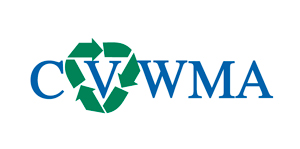Until recently, when China stopped accepting certain commodities such as mixed paper because of what they deemed poor quality, the country was the largest importer of recyclable material in the world. In fact, nearly all of the paper and cardboard collected in Central Virginia for recycling was marketed to paper mills in China. In the past, revenue generated from the sale of recyclables to China covered the labor and equipment necessary to sort, bale, and transport the recycled paper product to respective markets. However, because of this disruption in the recycling markets, the revenue received from the sale of the commodities, if any, no longer covers the costs to process recyclables. The continued success of recycling programs locally and globally is dependent on economically feasible end markets like China.
What does the price of mixed paper in China have to do with whether you neglected to rinse out a yogurt cup before you tossed it in the recycling bin? If the item has the recycling symbol, isn’t it always accepted? And why are plastic bags such a big deal?
At CVWMA, we are taking steps to educate and inform Central Virginians about the impact of our actions on the success of recycling programs in an effort to improve the overall quality of our recycling. That includes working with the Recycling Partnership, a national nonprofit organization that leverages corporate partner funding to transform recycling. According to Keefe Harrison, executive director of the Recycling Partnership, “there is always a market for a quality product.” This means communities that take steps to improve recycling will benefit from those steps. “When recycling is done well, it supports jobs, the environment, and the economy in cities and towns nationwide,” says Harrison.
As we move forward, it’s important to remember that recycling containers are for recyclable items only. Placing items, such as plastic bags or food-contaminated containers in your curbside recycling cart or bin or in drop-off recycling containers leads to contamination issues and adds additional processing and disposal costs. It is never a good idea to place items for recycling in plastic bags before putting them in a bin or cart. Plastic bags cause damage and loss of time when the sorting line has to shut down to remove bags that have wrapped around equipment and repair the machine works. In addition, just because the item has a recycling symbol on it does not mean it is accepted in CVWMA’s recycling programs.
Beginning last month, Oops! tags were placed on recycling bins and carts with unacceptable items. CVWMA’s recycling vendors have been instructed not to pick up unwanted items like plastic bags and other non-recyclables, including food-contaminated containers.
Central Virginia has a strong record on recycling, and to continue that success, we’ll need the help of every family who recycles. Whether your recyclables are picked up from your home or you transport them to a drop-off site, it is imperative that we place only loose, acceptable, non-contaminated items in the container.
If you find an Oops! tag on your bin or cart and your recycling was not collected, you may have included items that are not acceptable. To avoid this, visit CVWMA.com for complete guidelines on acceptable items for recycling. Don’t let your recycling container get rejected. We know there will be some challenges and frustration as we navigate our way to a new normal, but with your help, we can transform recycling into a thriving, sustainable benefit for our community.





